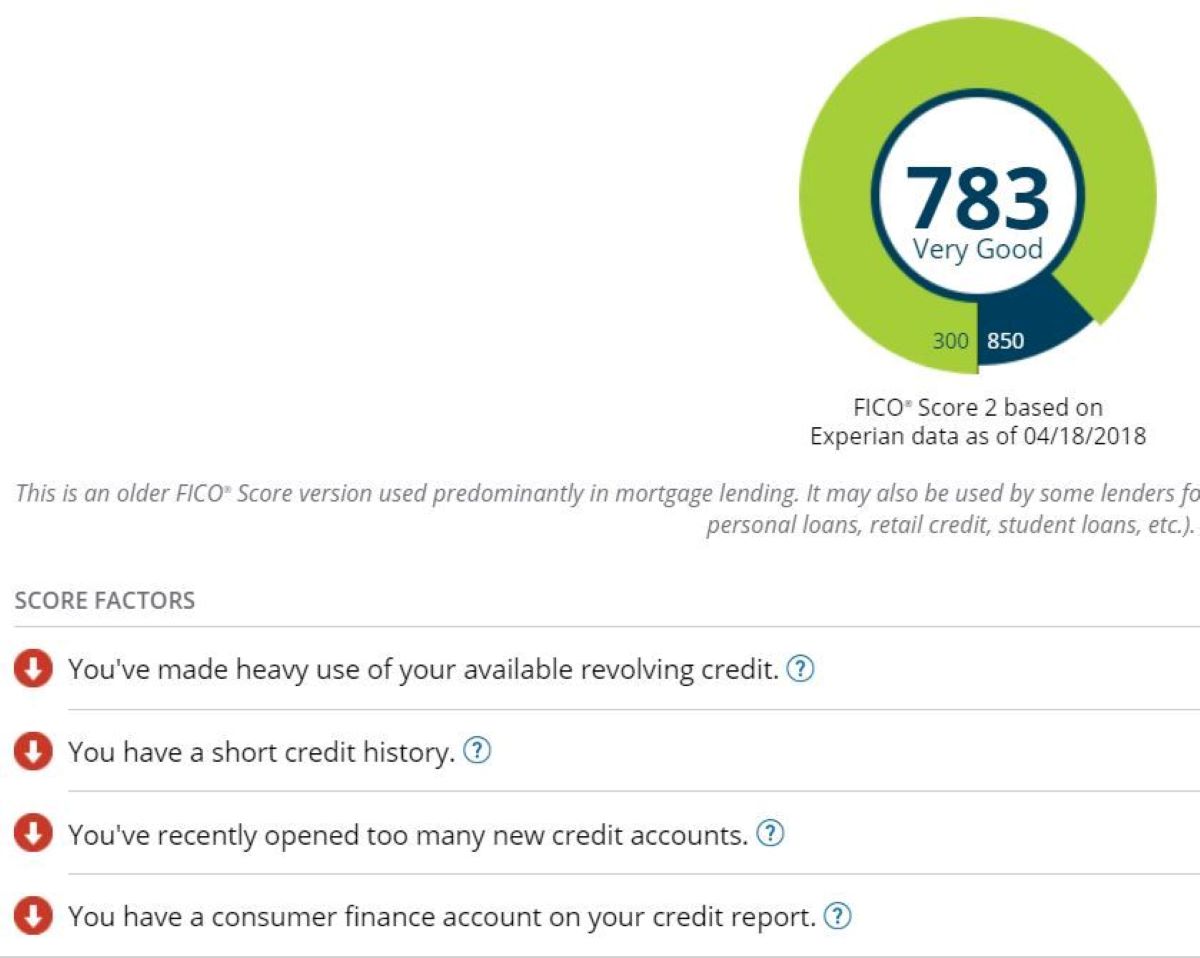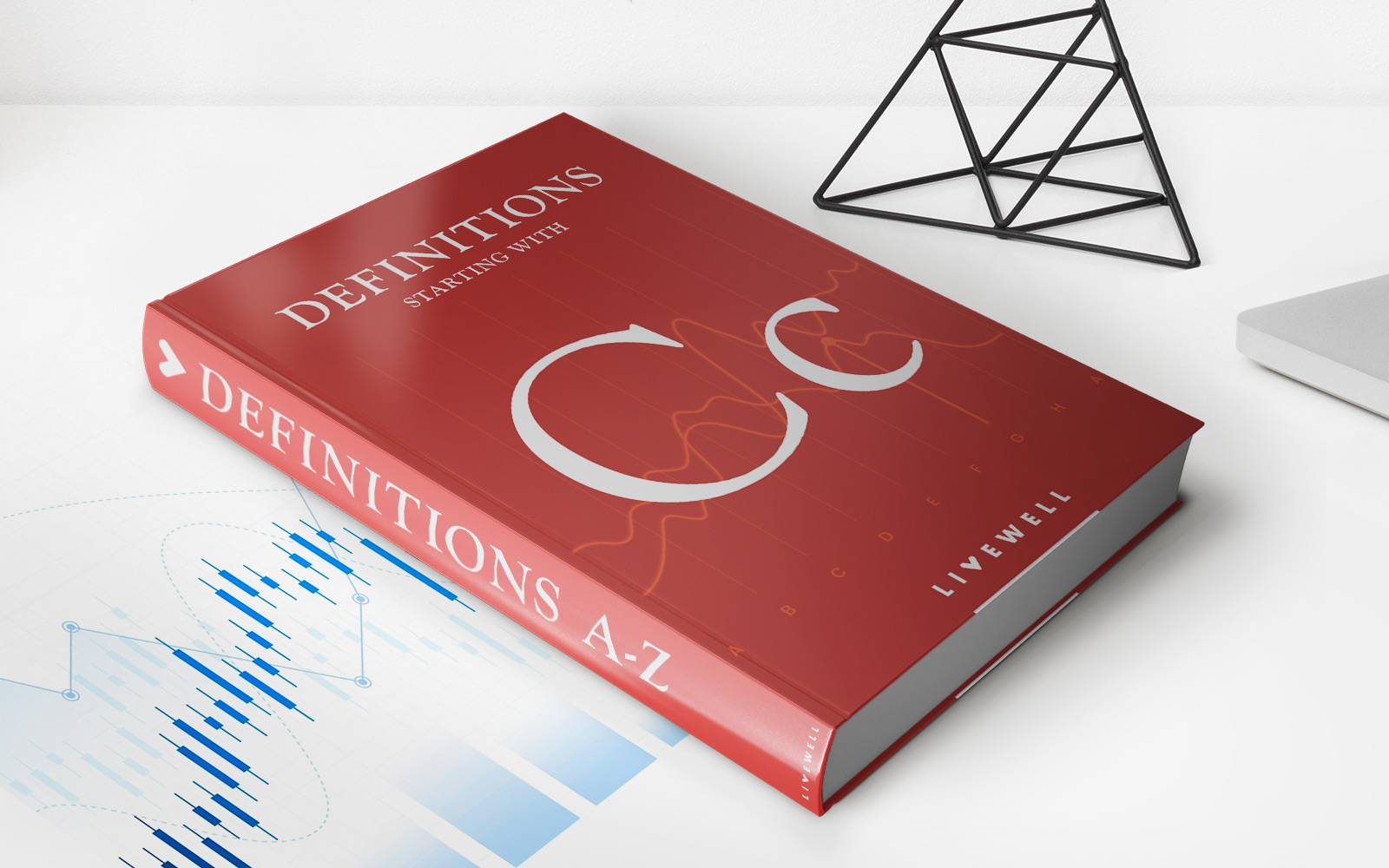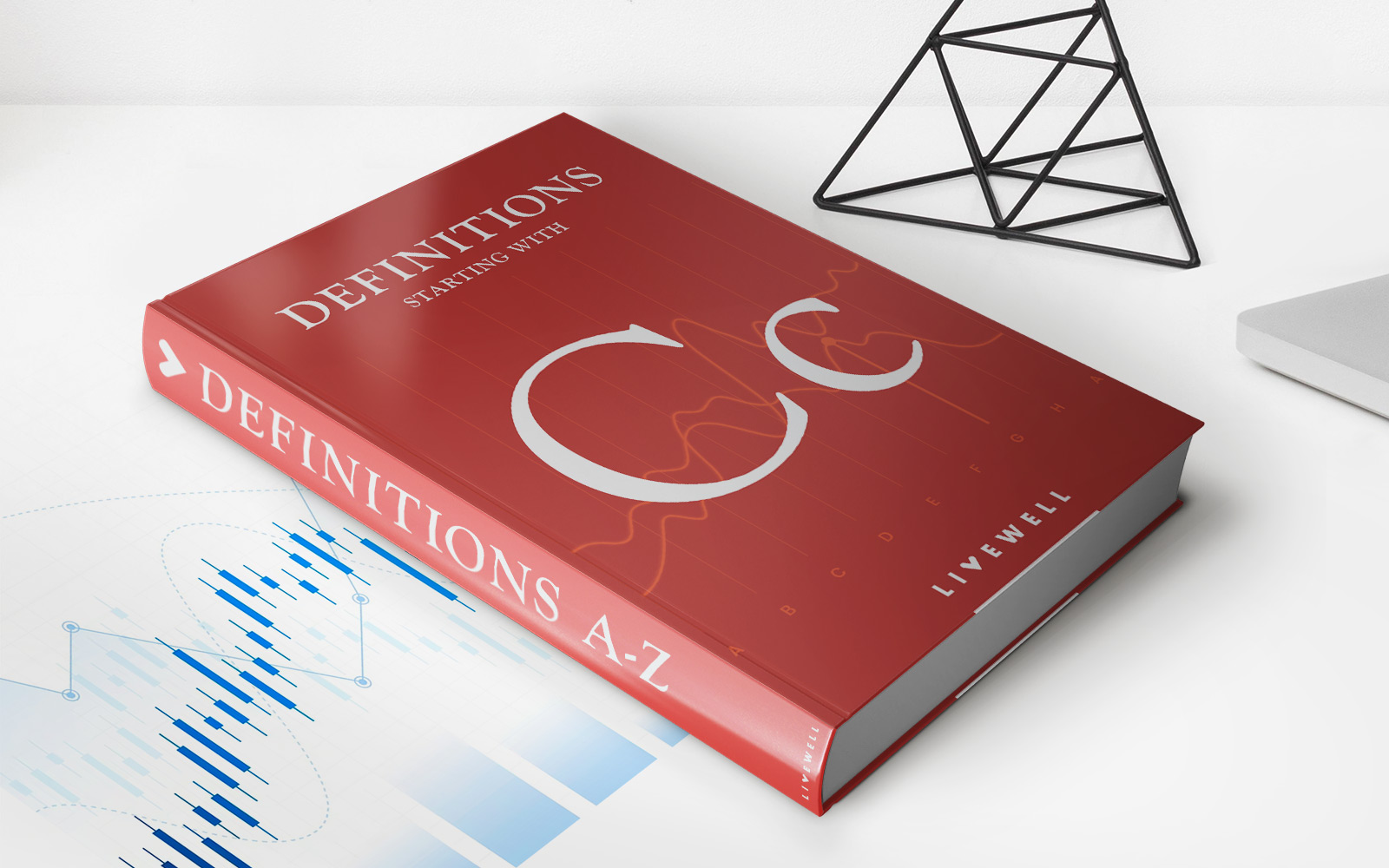Home>Finance>Why Is My Credit Score Dropping When My Credit Utilization Has Dropped??


Finance
Why Is My Credit Score Dropping When My Credit Utilization Has Dropped??
Published: March 6, 2024
Learn why your credit score may be dropping despite a decrease in credit utilization. Get expert insights and tips to manage your finances effectively.
(Many of the links in this article redirect to a specific reviewed product. Your purchase of these products through affiliate links helps to generate commission for LiveWell, at no extra cost. Learn more)
Table of Contents
Understanding the Intricacies of Credit Scores and Utilization
Introduction
Credit scores play a pivotal role in individuals' financial lives, influencing their ability to secure favorable loan terms, obtain credit cards, and even access certain job opportunities. One of the key factors affecting credit scores is credit utilization, which refers to the percentage of available credit that a borrower is currently using. Understanding the dynamics of credit utilization and its impact on credit scores is crucial for maintaining a healthy financial profile.
Credit utilization is a fundamental component of credit scoring models, with major credit bureaus and scoring systems considering both individual and overall credit utilization. It is calculated by dividing the total outstanding balances on credit accounts by the total credit limits, yielding a percentage that reflects the extent to which available credit is being utilized. Generally, a lower credit utilization ratio is indicative of responsible credit management and is thus favorable for credit scores.
Despite the importance of maintaining a low credit utilization ratio, it is not the sole determinant of credit scores. Various other factors, such as payment history, length of credit history, types of credit in use, and recent credit inquiries, also contribute to the overall credit score. Therefore, fluctuations in credit scores may not always be directly attributable to changes in credit utilization alone.
In this article, we will delve into the intricacies of credit utilization and its impact on credit scores. We will also explore potential reasons for a credit score drop despite reduced credit utilization, equipping readers with the knowledge to navigate and improve their credit profiles effectively. Understanding these nuances is essential for making informed financial decisions and proactively managing one's credit health.
Understanding Credit Utilization
Credit utilization, often referred to as the credit utilization ratio, is a critical metric in the realm of credit scoring. It is a measure of how much of one’s available credit is being utilized at a given point in time. This ratio is calculated by dividing the total outstanding balances on credit accounts by the total credit limits. For example, if a person has a total credit limit of $10,000 across all their credit cards and carries a total balance of $2,000, their credit utilization ratio would be 20%.
Lenders and credit scoring models place significant emphasis on credit utilization as it provides insights into an individual’s borrowing behavior and financial management. A lower credit utilization ratio is generally perceived as a positive indicator, suggesting that the individual is not overly reliant on credit and is managing their finances prudently. On the other hand, a high credit utilization ratio can signal financial distress or over-reliance on credit, potentially raising concerns among lenders and negatively impacting credit scores.
Financial experts often recommend maintaining a credit utilization ratio below 30%, with an ideal target of 10% or lower for optimal credit health. By keeping credit utilization low, individuals demonstrate responsible credit management, which can bolster their credit scores and enhance their overall financial standing.
It is important to note that credit utilization is considered at both the individual account level and the aggregate level across all credit accounts. While it is advisable to keep the utilization low on each individual credit account, the overall utilization across all accounts is equally significant. Moreover, credit utilization is not a static metric and can fluctuate as credit card balances are paid off or new credit lines are opened, thereby influencing credit scores over time.
Understanding the impact of credit utilization and actively managing it can empower individuals to make informed financial decisions and strategically improve their credit profiles. By maintaining a healthy credit utilization ratio, individuals can enhance their creditworthiness and access a myriad of financial opportunities with confidence.
Factors Affecting Credit Score
A credit score serves as a comprehensive indicator of an individual’s creditworthiness, encapsulating various financial behaviors and patterns. While credit utilization is a significant component, several other factors contribute to the calculation of a credit score. Understanding these factors is essential for individuals seeking to maintain and improve their credit profiles.
- Payment History: One of the most influential factors impacting credit scores is the payment history. Timely payments on credit accounts, such as loans and credit cards, contribute positively to the credit score, reflecting responsible financial behavior. Conversely, late payments, defaults, and accounts in collections can significantly lower credit scores.
- Credit Utilization: As discussed earlier, credit utilization plays a pivotal role in credit scoring models. Maintaining a low credit utilization ratio demonstrates prudent credit management and can positively impact credit scores.
- Length of Credit History: The length of one’s credit history is another crucial factor. A longer credit history provides a more comprehensive view of an individual’s financial behavior, allowing scoring models to assess creditworthiness more accurately. Individuals with longer credit histories may have higher credit scores, provided they have managed their credit responsibly over time.
- Types of Credit in Use: The diversity of credit accounts, including credit cards, installment loans, and mortgages, can influence credit scores. A healthy mix of credit types, responsibly managed, can contribute positively to credit scores.
- New Credit Inquiries: When individuals apply for new credit, such as a credit card or loan, the resulting credit inquiries can impact credit scores. Multiple inquiries within a short period may raise concerns about financial distress or overextension, potentially lowering credit scores.
These factors collectively shape an individual’s credit score, reflecting their financial habits, responsibilities, and credit management skills. While credit utilization is a key element, it is essential to recognize the multifaceted nature of credit scoring and the various aspects that contribute to a comprehensive assessment of creditworthiness.
By proactively managing these factors, individuals can work towards maintaining healthy credit scores, which, in turn, can open doors to favorable lending terms, lower interest rates, and a myriad of financial opportunities.
Potential Reasons for Credit Score Drop Despite Reduced Credit Utilization
While reducing credit utilization can generally have a positive impact on credit scores, there are instances where individuals may experience a decline in their credit scores despite actively managing their credit utilization. Understanding the potential reasons behind this phenomenon is crucial for individuals seeking to navigate and improve their credit profiles effectively.
- Changes in Payment History: A significant factor influencing credit scores is the payment history. Even with reduced credit utilization, missed or late payments on credit accounts can lead to a decline in credit scores. Therefore, it is essential to maintain a consistent track record of timely payments to uphold credit scores.
- Impact of Credit Inquiries: Applying for new credit can result in hard inquiries on credit reports, potentially lowering credit scores. Despite reduced credit utilization, if an individual has recently applied for multiple new credit accounts, the resulting inquiries can contribute to a credit score decrease.
- Fluctuations in Credit Balances: Credit scores can be influenced by the ongoing balances on credit accounts, which may fluctuate due to regular spending, payments, or billing cycles. Even with reduced overall credit utilization, if balances on individual accounts are high at the time of credit reporting, it can impact credit scores negatively.
- Closing Credit Accounts: While reducing credit utilization often involves paying down balances, individuals may also opt to close credit accounts to curb their credit exposure. However, closing accounts can impact the overall credit utilization ratio and the average age of accounts, potentially leading to a credit score drop.
- Errors on Credit Reports: Inaccuracies or errors on credit reports, such as erroneous late payment notations or incorrect account balances, can adversely affect credit scores. It is essential to regularly review credit reports for inaccuracies and address any discrepancies promptly.
It is crucial to recognize that credit scores are influenced by a myriad of factors beyond credit utilization, and fluctuations in scores may stem from various elements within an individual’s credit profile. By monitoring these factors and actively managing their credit behaviors, individuals can work towards maintaining and improving their credit scores over time.
Seeking guidance from financial advisors or credit counseling services can also provide valuable insights into optimizing credit profiles and addressing potential issues that may impact credit scores, ultimately empowering individuals to make informed financial decisions and achieve their credit-related goals.
Monitoring and Improving Credit Score
Monitoring and actively managing one’s credit score is essential for maintaining a healthy financial profile and accessing favorable lending opportunities. Individuals can employ several strategies to monitor and improve their credit scores, empowering them to make informed financial decisions and achieve their long-term financial goals.
Regularly Review Credit Reports: Monitoring credit reports from major credit bureaus allows individuals to identify inaccuracies, unauthorized accounts, or potential signs of identity theft. By law, individuals are entitled to receive a free credit report annually from each of the major credit reporting agencies, enabling them to stay informed about their credit standing.
Utilize Credit Monitoring Services: Many financial institutions and independent services offer credit monitoring tools that provide regular updates on credit scores, alerts for significant changes, and insights into the factors influencing credit profiles. These services can be valuable for staying informed about credit health and addressing potential issues promptly.
Practice Responsible Credit Management: Maintaining a low credit utilization ratio, making timely payments, and avoiding excessive credit inquiries are fundamental aspects of responsible credit management. By managing credit accounts prudently and avoiding behaviors that can negatively impact credit scores, individuals can work towards sustaining and improving their creditworthiness.
Address Inaccuracies Promptly: In the event of inaccuracies or discrepancies on credit reports, individuals should take proactive steps to dispute and rectify these issues. Resolving inaccuracies can prevent unwarranted negative impacts on credit scores and ensure the accuracy of credit information.
Strategically Manage Credit Utilization: While reducing credit utilization is beneficial, individuals can strategically manage their credit balances and limits to optimize their credit utilization ratio. This may involve paying down balances, requesting credit limit increases, or responsibly opening new credit accounts to enhance the overall credit utilization ratio.
Seek Professional Guidance: Financial advisors, credit counselors, and reputable financial institutions can offer valuable guidance on credit management, debt repayment strategies, and improving credit scores. Seeking expert advice can provide individuals with tailored insights and actionable steps to enhance their credit profiles effectively.
By proactively monitoring their credit scores, addressing potential issues, and practicing responsible credit management, individuals can navigate the complexities of credit scoring and work towards achieving and maintaining healthy credit profiles. A strategic approach to credit management can pave the way for improved financial opportunities, lower borrowing costs, and greater financial stability in the long run.
Conclusion
Understanding the intricate relationship between credit utilization and credit scores is paramount for individuals striving to maintain and improve their financial health. While credit utilization plays a pivotal role in credit scoring models, it is essential to recognize that credit scores are influenced by a myriad of factors, encompassing payment history, length of credit history, types of credit in use, and new credit inquiries.
Individuals may experience fluctuations in their credit scores despite actively managing their credit utilization. Factors such as changes in payment history, credit inquiries, fluctuations in credit balances, closing credit accounts, and errors on credit reports can contribute to credit score variations, necessitating a holistic approach to credit management and monitoring.
By proactively monitoring their credit reports, practicing responsible credit management, and addressing potential inaccuracies, individuals can navigate the complexities of credit scoring and work towards improving their credit profiles. Utilizing credit monitoring services and seeking professional guidance can provide valuable insights and tailored strategies for optimizing credit health.
Ultimately, the strategic management of credit utilization, coupled with a comprehensive understanding of credit scoring factors, empowers individuals to make informed financial decisions, access favorable lending terms, and cultivate long-term financial stability. By actively engaging in credit score monitoring and implementing prudent credit management practices, individuals can pave the way for improved financial opportunities and enhanced creditworthiness.
Embracing a proactive and informed approach to credit management equips individuals with the tools to navigate the dynamic landscape of credit scoring, positioning them to achieve their financial goals and secure a robust foundation for their financial well-being.














